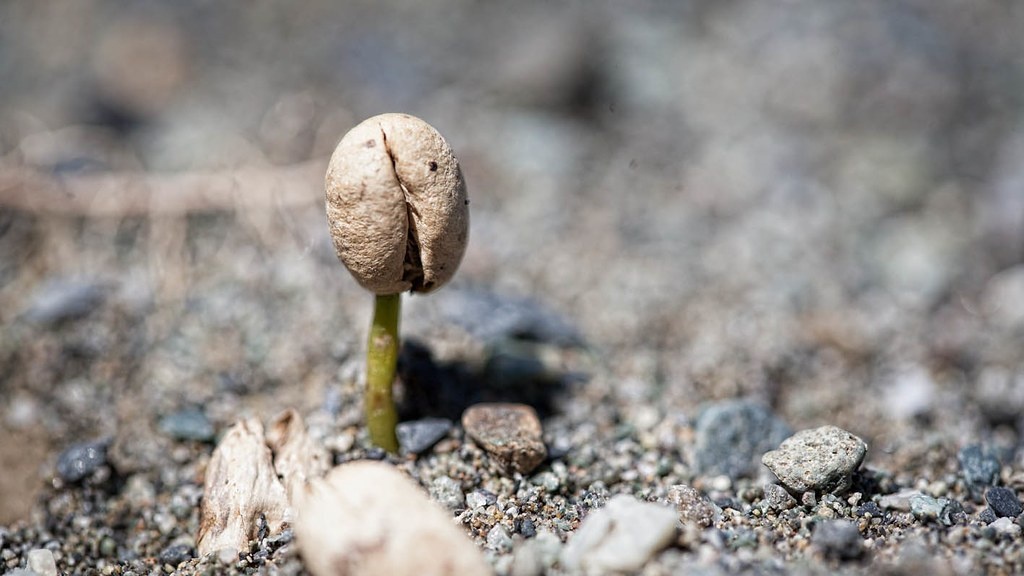Does Drinking Coffee Effect Sperm Count?
Coffee is one of the most widely consumed beverages in the world. But, it has long been suspected of having a negative impact on fertility. Studies have shown that drinking several cups of coffee a day may decrease sperm quality, and recent research even suggests that high levels of caffeine consumption may reduce sperm count as well.
The idea of reducing sperm count due to caffeine consumption has been around for quite some time, but research into the area remains relatively sparse. Several studies have been conducted on a variety of subjects, but few have produced reliable results. Some have reported decreased sperm counts in animals such as rats after exposure to caffeine, but most human studies have found no significant difference.
One study, published in the European Journal of Clinical Nutrition in 2009, examined more than 200 men over a one-year period. Participants who drank four or more cups of coffee a day were found to have decreased sperm counts compared to those who drank no caffeine. However, this was only an observational study, so further research is needed to confirm this result.
In addition to the effects on sperm count, some experts also believe that caffeine consumption may affect the quality and motility of sperm as well. A study published in the journal Human Reproduction found that drinking three or more cups of coffee a day may cause decreased sperm motility and impaired semen quality in men.
Although researchers are still uncertain regarding the exact mechanisms behind the effects of caffeine on fertility, they speculate that the caffeine’s stimulant effects on the body may disrupt hormones related to reproduction. In addition, caffeine is known to cause dehydration, which can also lead to decreased sperm quality.
To determine if drinking coffee has an effect on sperm count, experts recommend limiting caffeine consumption to moderate levels. Most studies suggest that men should not consume more than two or three cups of coffee a day to reduce the risk of decreasing sperm count. Additionally, other studies recommend replacing caffeinated beverages with other fluids that are rich in nutrients, such as water and herbal teas, which can aid in improving fertility.
Does Caffeine Have a Negative Effect on Fertility?
Studies on the effects of caffeine on fertility have yielded mixed results. Some studies have found that drinking coffee or other caffeinated beverages may reduce the quality of a man’s sperm, while other studies have found no effect on a couple’s fertility. The issue of caffeine’s effect on fertility is further complicated by the fact that there is no clear consensus on whether or not caffeine has a negative impact on fertility.
The general consensus among experts is that the amount of caffeine a person consumes may play a role in decreasing fertility. However, there is no clear consensus on the exact amount of caffeine that is safe for a man to consume. Most studies suggest that men should consume no more than two to three cups of coffee a day, but some men may be more sensitive to caffeine’s effects than others.
Some studies also suggest that the way a person consumes caffeine may also play a role in reducing fertility. For example, some studies have suggested that drinking coffee as opposed to taking it in pill form may have a greater effect on fertility. Additionally, drinking caffeinated drinks at night has been linked to decreased fertility, as it can disrupt a person’s sleep cycle, which may have a negative impact on reproductive health.
In general, reducing caffeine intake or changing how a person consumes caffeine may help improve fertility. However, more research is needed to determine the exact effects of caffeine on fertility.
Does the Type of Coffee Have an Effect on Fertility?
Different types of coffee vary greatly in terms of their caffeine content, and there is evidence to suggest that the type of coffee may also have an effect on fertility. Studies have suggested that light roast coffee may have a lesser effect on sperm count than dark roast coffee, as dark roast coffee contains more caffeine than light roast coffee.
In addition, studies have also found that a person’s daily caffeine intake affects fertility differently based on their age. For example, a study published in Reproductive Biology and Endocrinology found that men under 30 years old who drank more than four cups of coffee a day had a lower sperm count than those who drank four or less. However, men over 30 who drank more than four cups of coffee had no difference in sperm count compared to those who drank four or less.
In general, experts suggest limiting caffeinated beverages to two to three cups a day and opting for light roast coffee instead of dark roast coffee to reduce caffeine intake and the potential effects on fertility. Additionally, limiting caffeine consumption to the morning and avoiding it in the evening may also help to improve fertility.
Can Caffeine Affect a Woman’s Fertility?
Caffeine consumption has long been associated with a decrease in fertility in men, but the effects on fertility in women are not as clear. Studies have shown mixed results when it comes to the effects of caffeine consumption on a woman’s fertility. Some studies have found that consuming more than 250 mg of caffeine a day may delay the time it takes a woman to get pregnant, while other studies have found that moderate consumption of caffeine does not affect a woman’s fertility.
In addition, some experts suggest that caffeine consumption may have a different effect on a woman’s fertility depending on her age. A study conducted by the Harvard T.H. Chan School of Public Health found that women aged 37 and over who consumed more than two cups of coffee a day were more likely to take longer to become pregnant than those who consumed less than two cups a day. However, the same study found no effect on fertility in women aged 29 and below.
In general, the exact effects of caffeine on a woman’s fertility are still uncertain. Most experts recommend limiting caffeine consumption to moderate levels, and suggest replacing caffeinated drinks with water and other fluids that are rich in nutrients, as these can aid in improving fertility.
How Can Coffee Drinking be Balanced with Fertility?
Although it may seem difficult to find a balance between drinking coffee and maintaining fertility at the same time, there are several ways to reduce the potential effects of caffeine on fertility. For example, drinking smaller amounts of coffee can help to reduce the amount of caffeine intake, as can replacing caffeinated drinks with herbal teas or decaffeinated beverages. Additionally, timing when one drinks caffeinated drinks may also have an effect, as drinking coffee or other caffeinated drinks at night has been linked to decreased fertility.
Additionally, men who are looking to improve their fertility and reduce the effects of caffeine may want to consider taking supplements. Supplements such as zinc, selenium, and omega-3 fatty acids can help to improve sperm count and quality. Additionally, some studies have shown that taking folic acid can also improve fertility in both men and women.
Although drinking coffee may have some potential effects on fertility, limiting caffeine consumption and finding ways to balance coffee drinking with fertility can help to reduce the potential effects. Additionally, taking supplements such as zinc, selenium, omega-3 fatty acids, and folic acid may also help to improve fertility.
What Else Can We Do to Improve Fertility?
In addition to limiting caffeine consumption and taking supplements, there are many other things that people can do to improve fertility. Eating a balanced and healthy diet, maintaining a healthy weight, and avoiding alcohol and smoking have all been linked to improved fertility. Additionally, getting regular exercise and managing stress levels can also help to improve fertility.
It is also important to speak with a doctor if one is having trouble conceiving, as the cause may be related to a medical condition. Additionally, couples having trouble conceiving should make sure that they are having sex on days when the woman is most fertile, which is usually 12-18 days before she begins her next menstrual cycle.
Overall, with a few simple changes in lifestyle, diet, and caffeine consumption people can improve their fertility. Additionally, speaking with a doctor and taking supplements can help to improve fertility as well.





